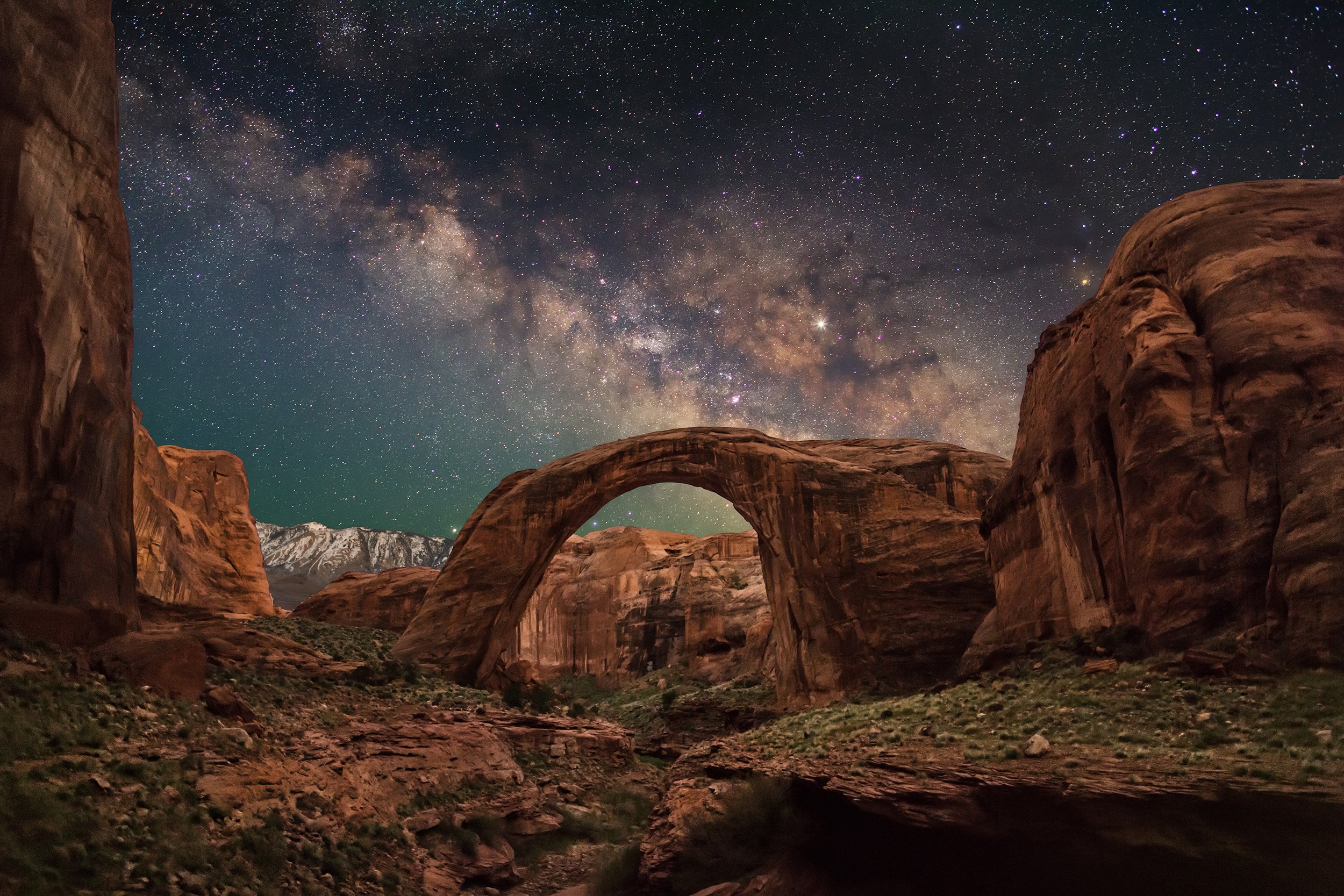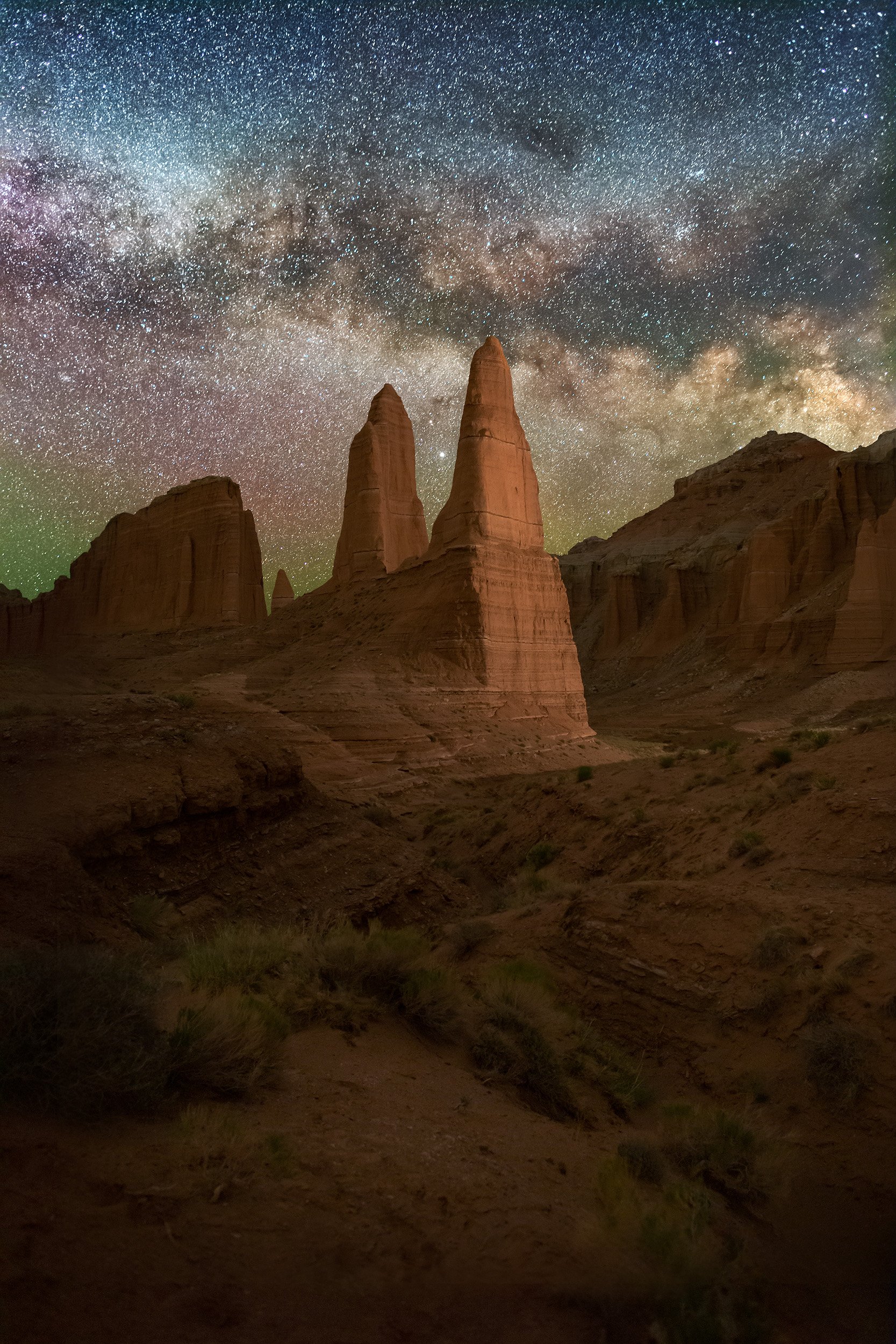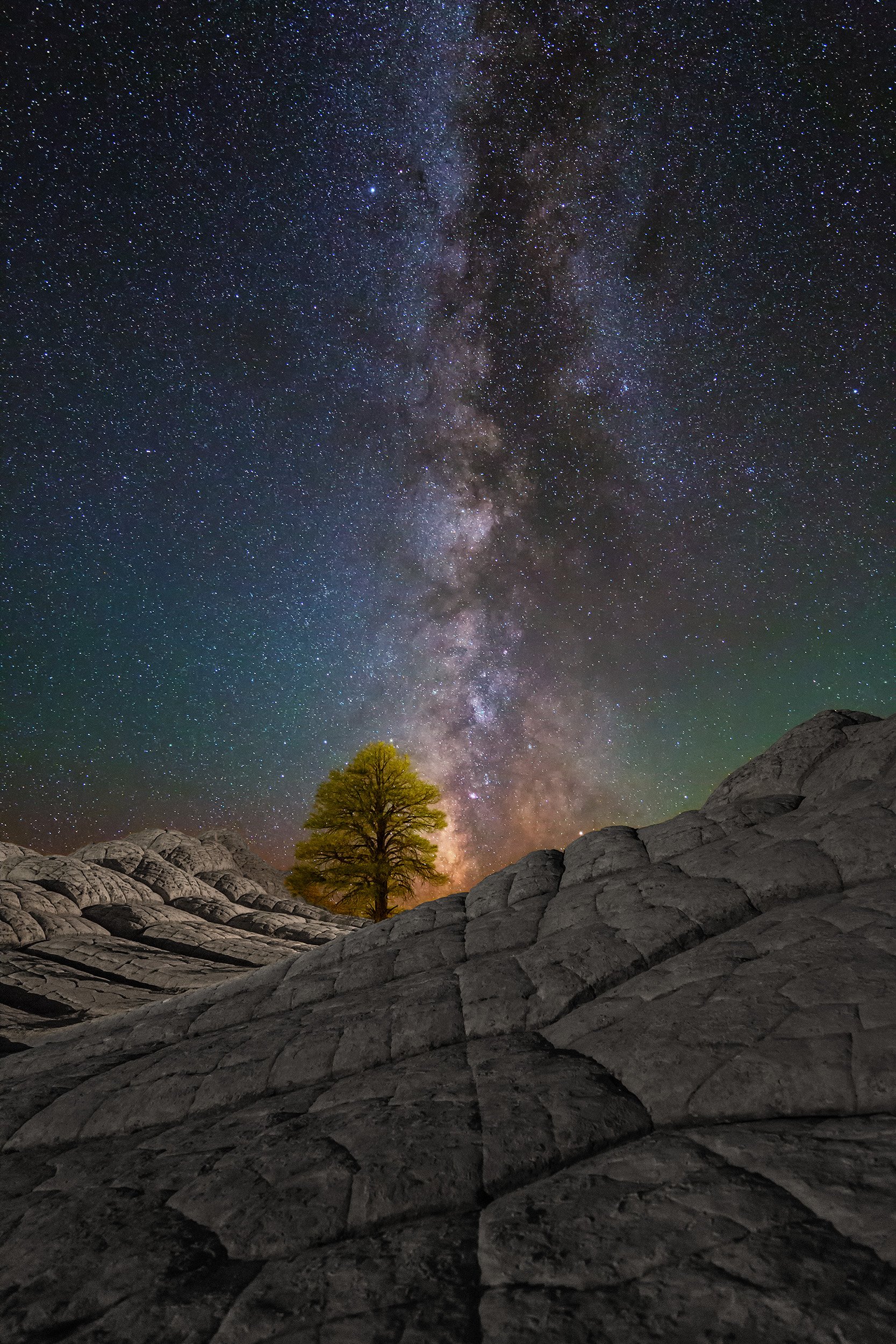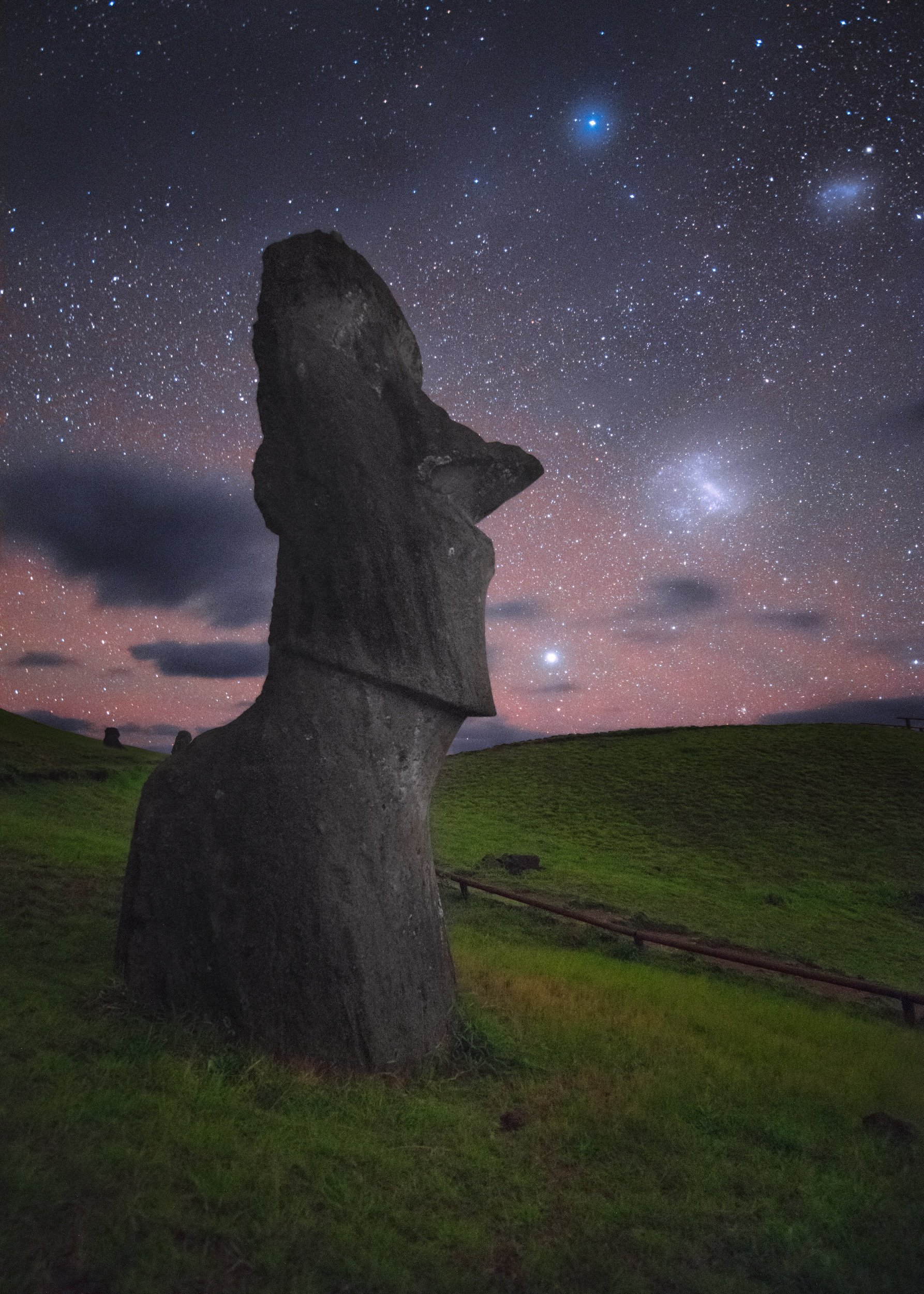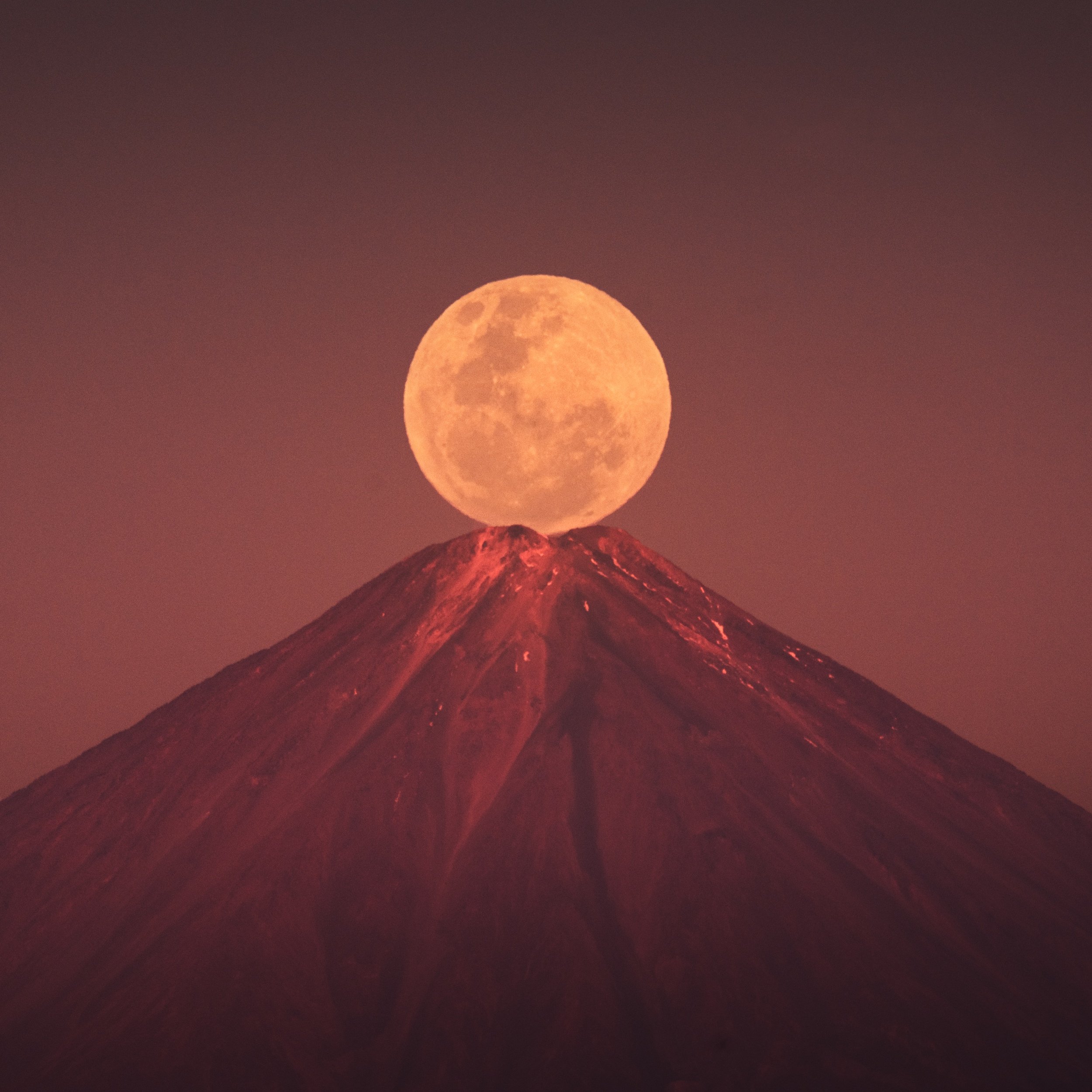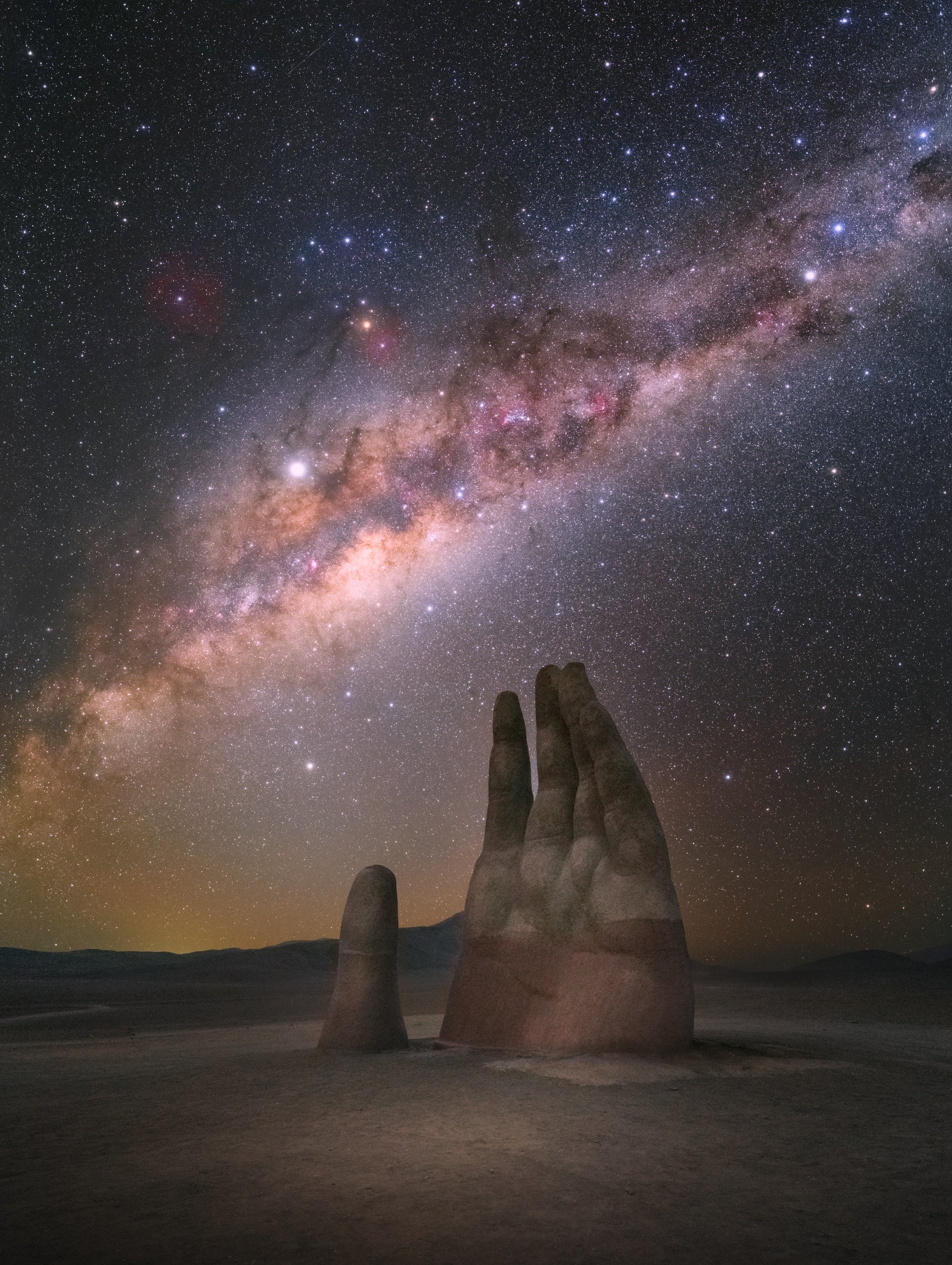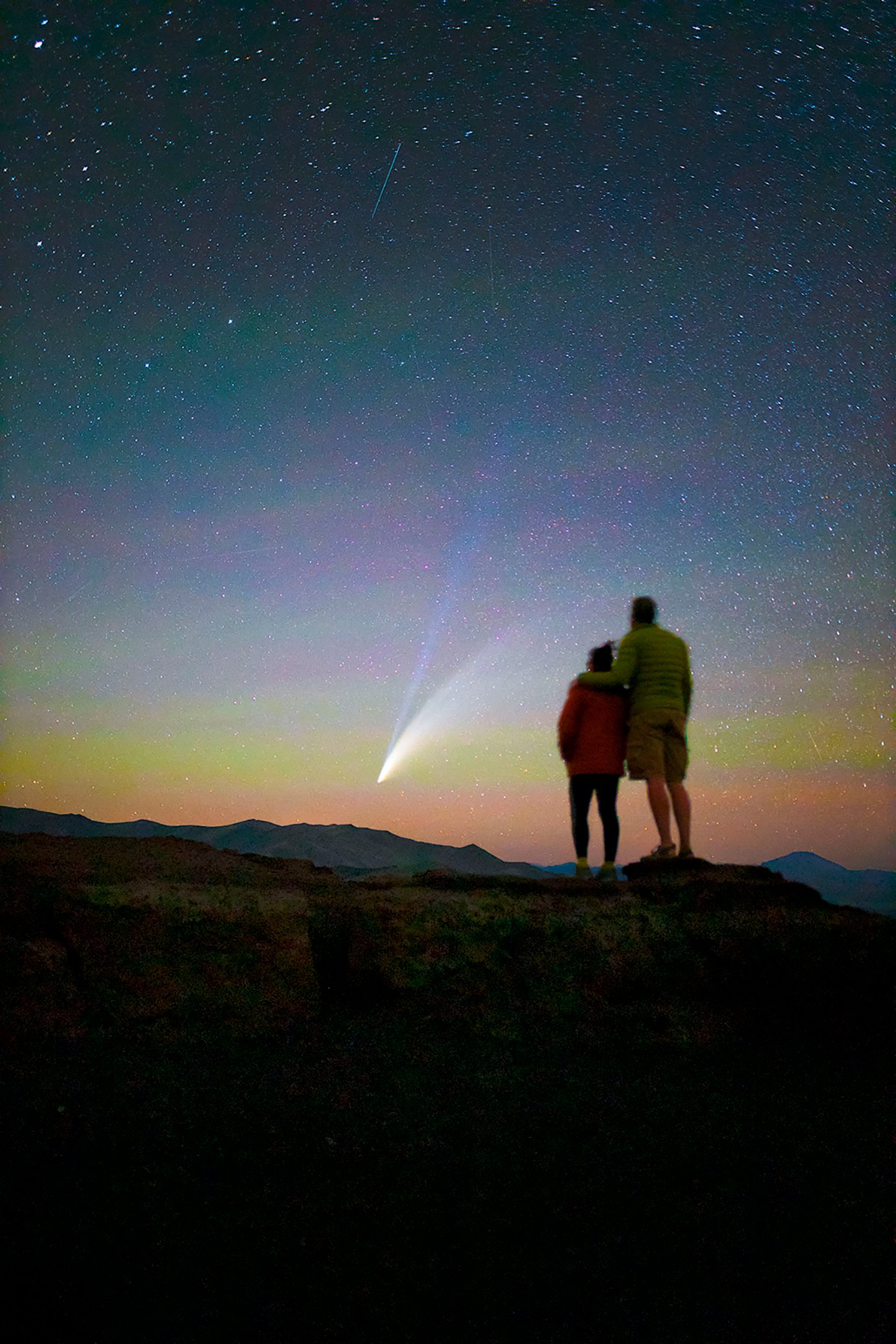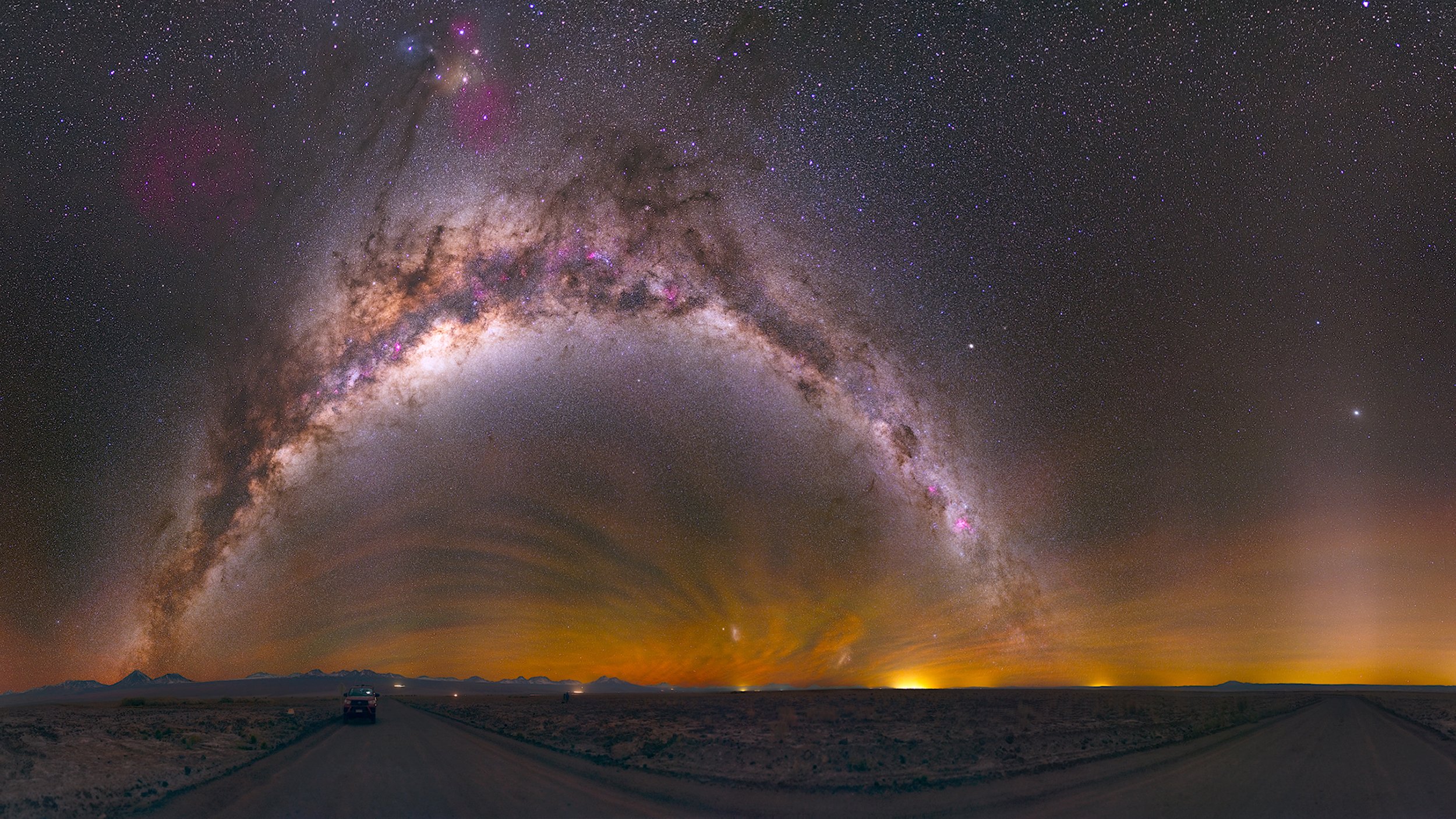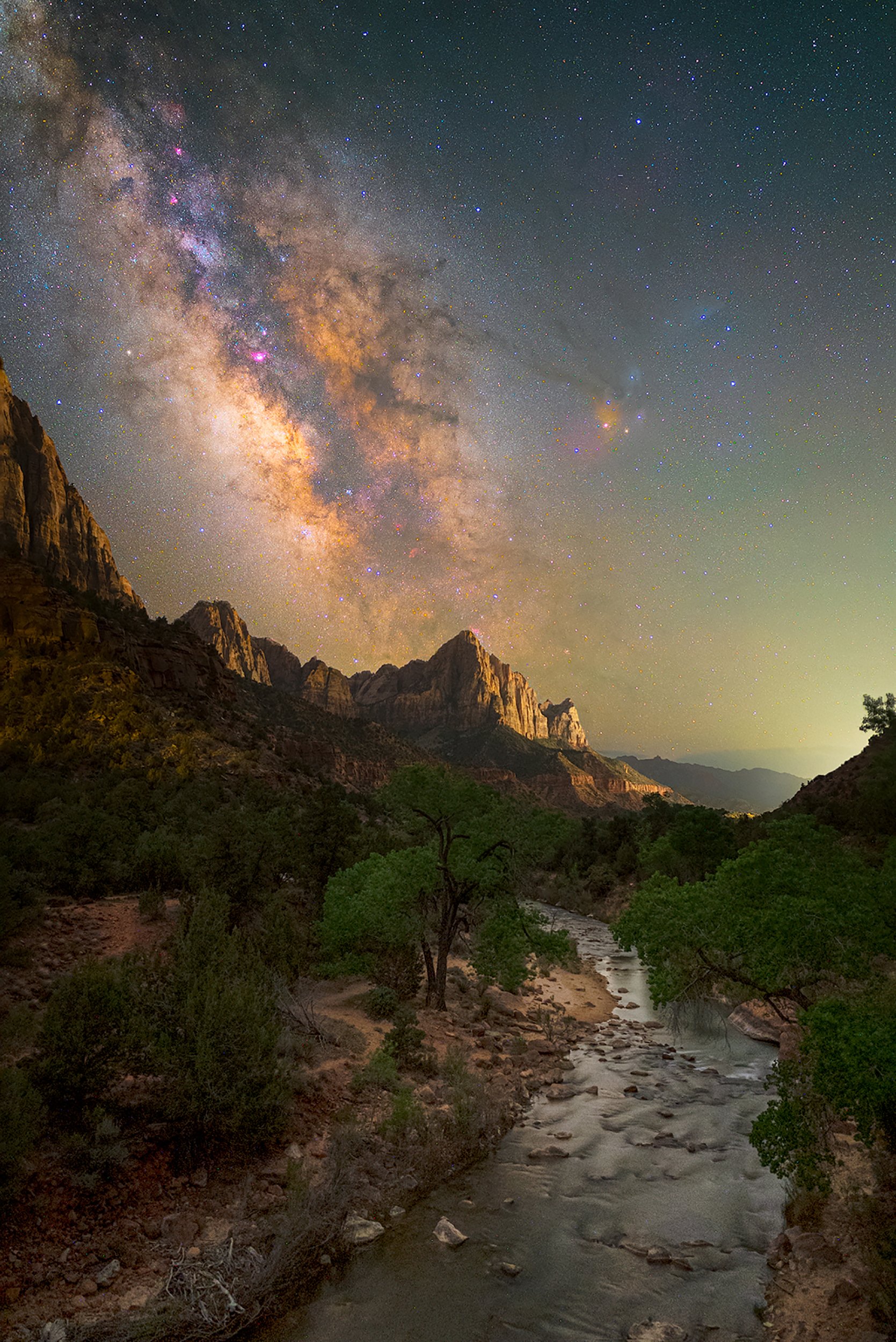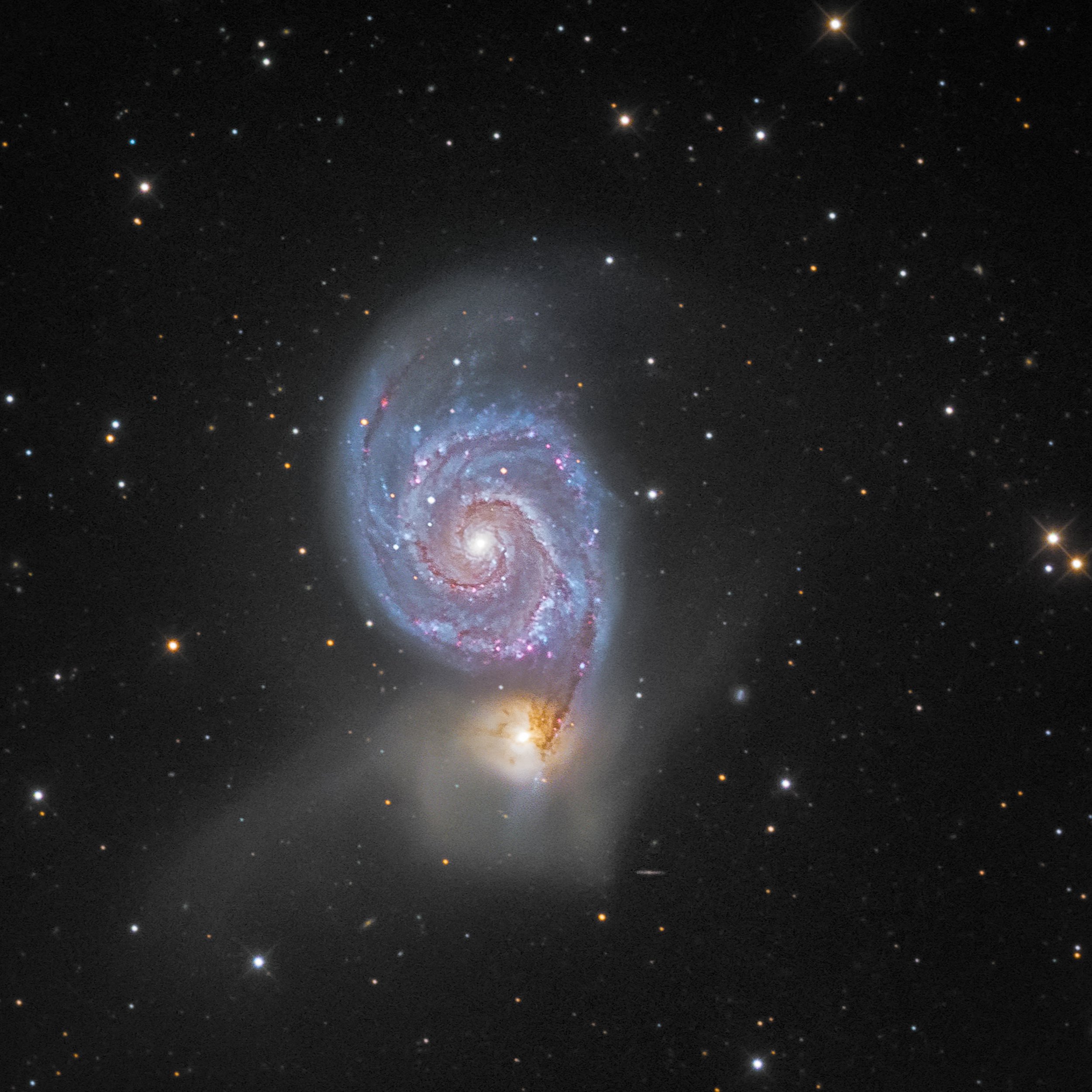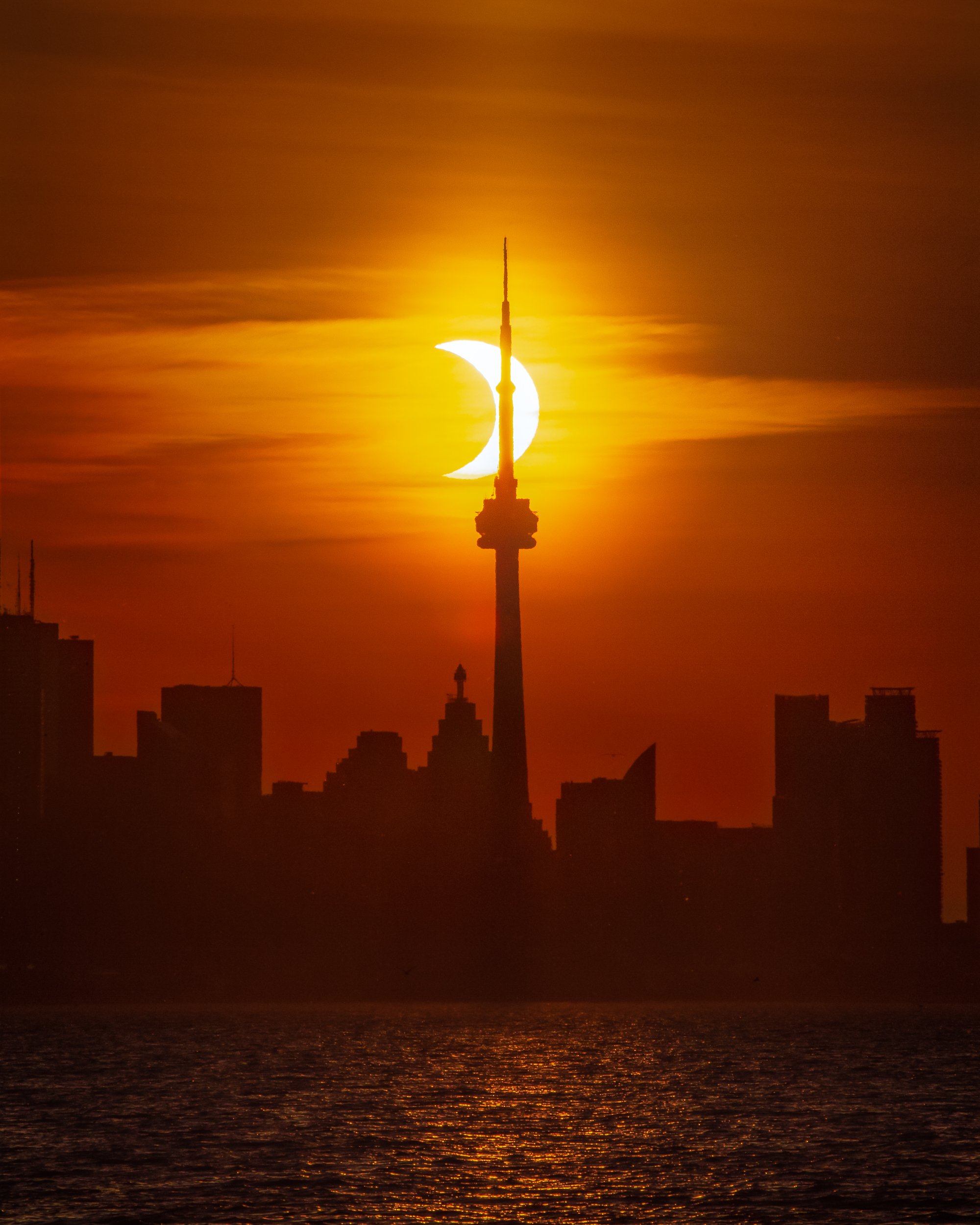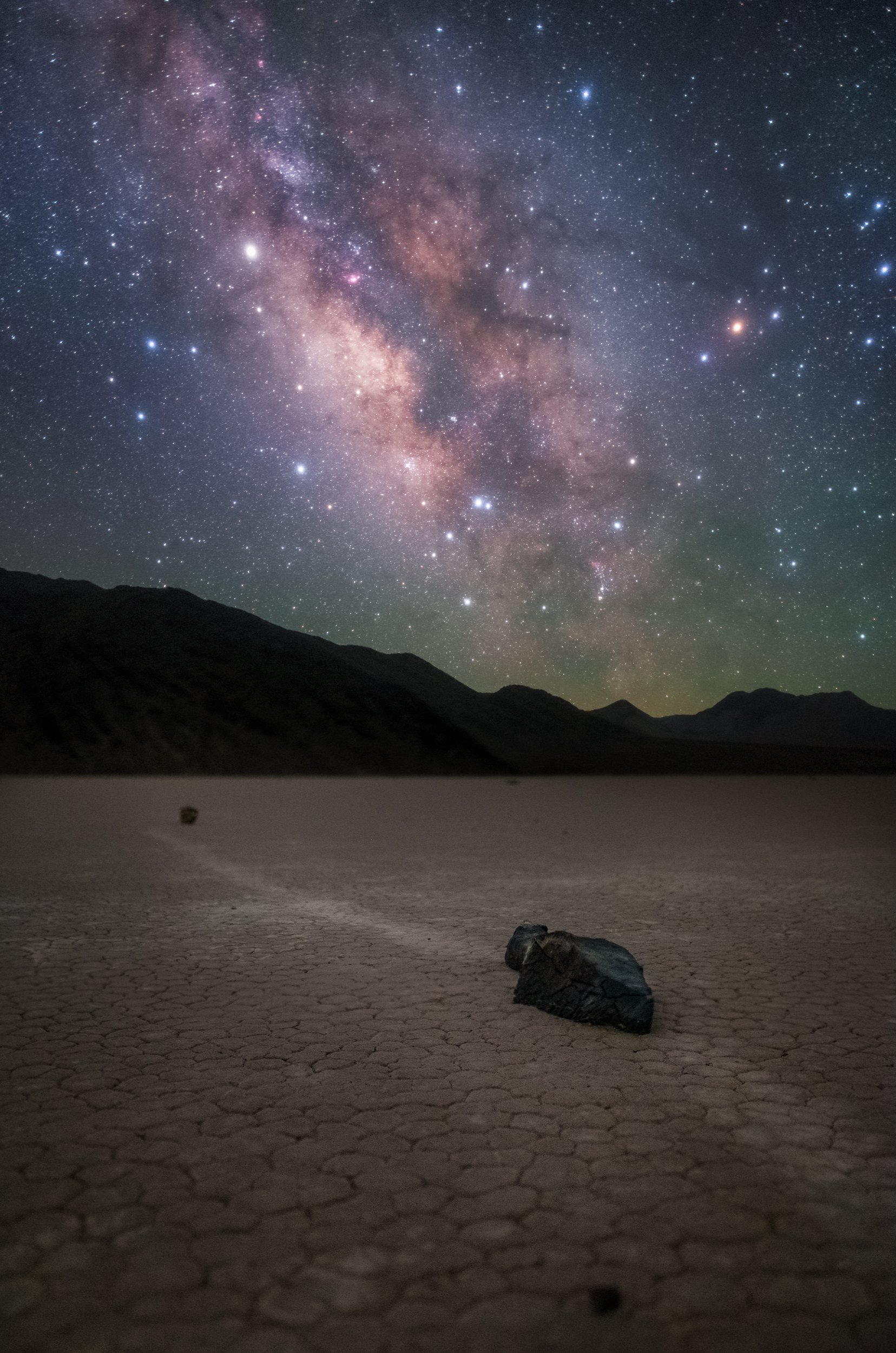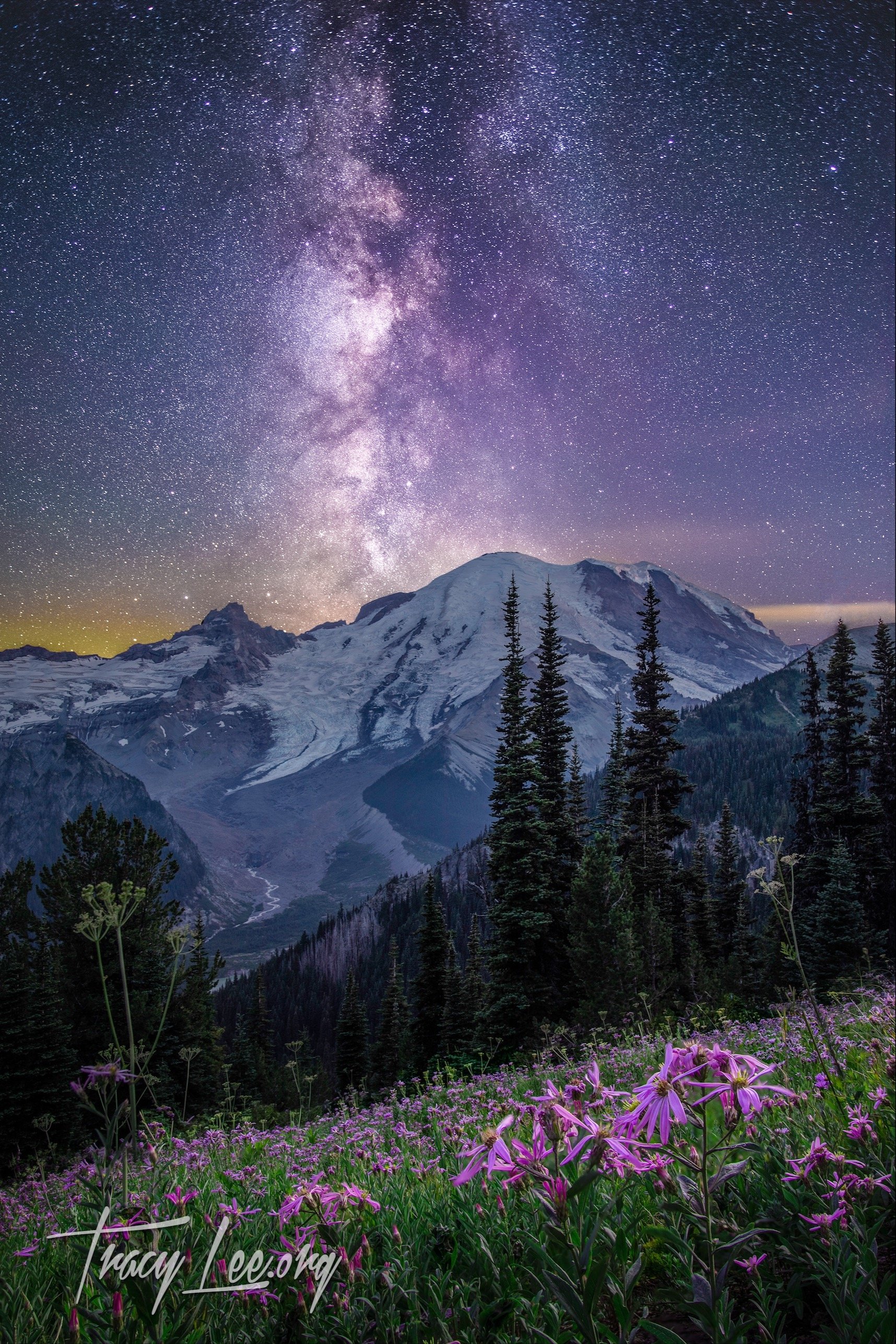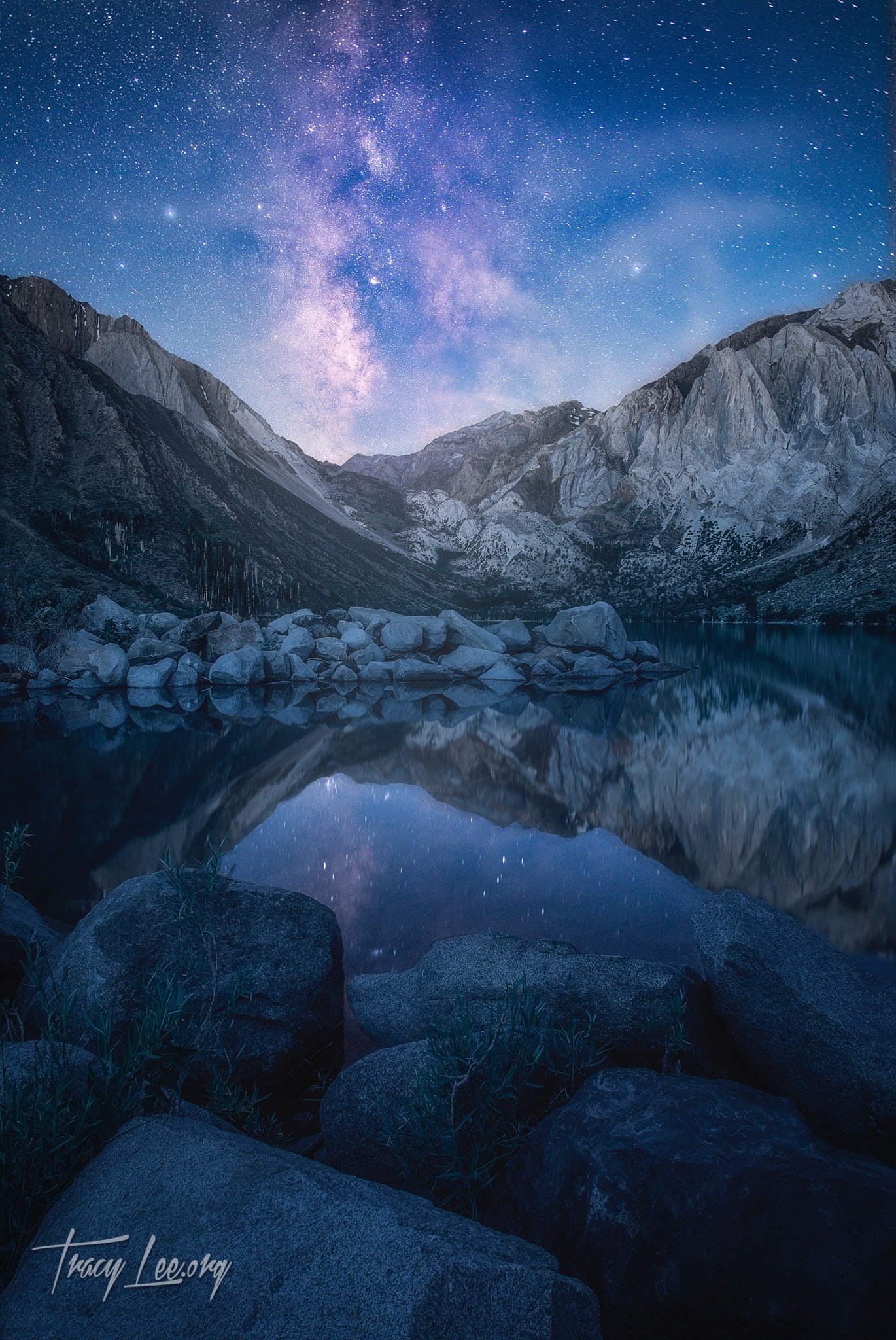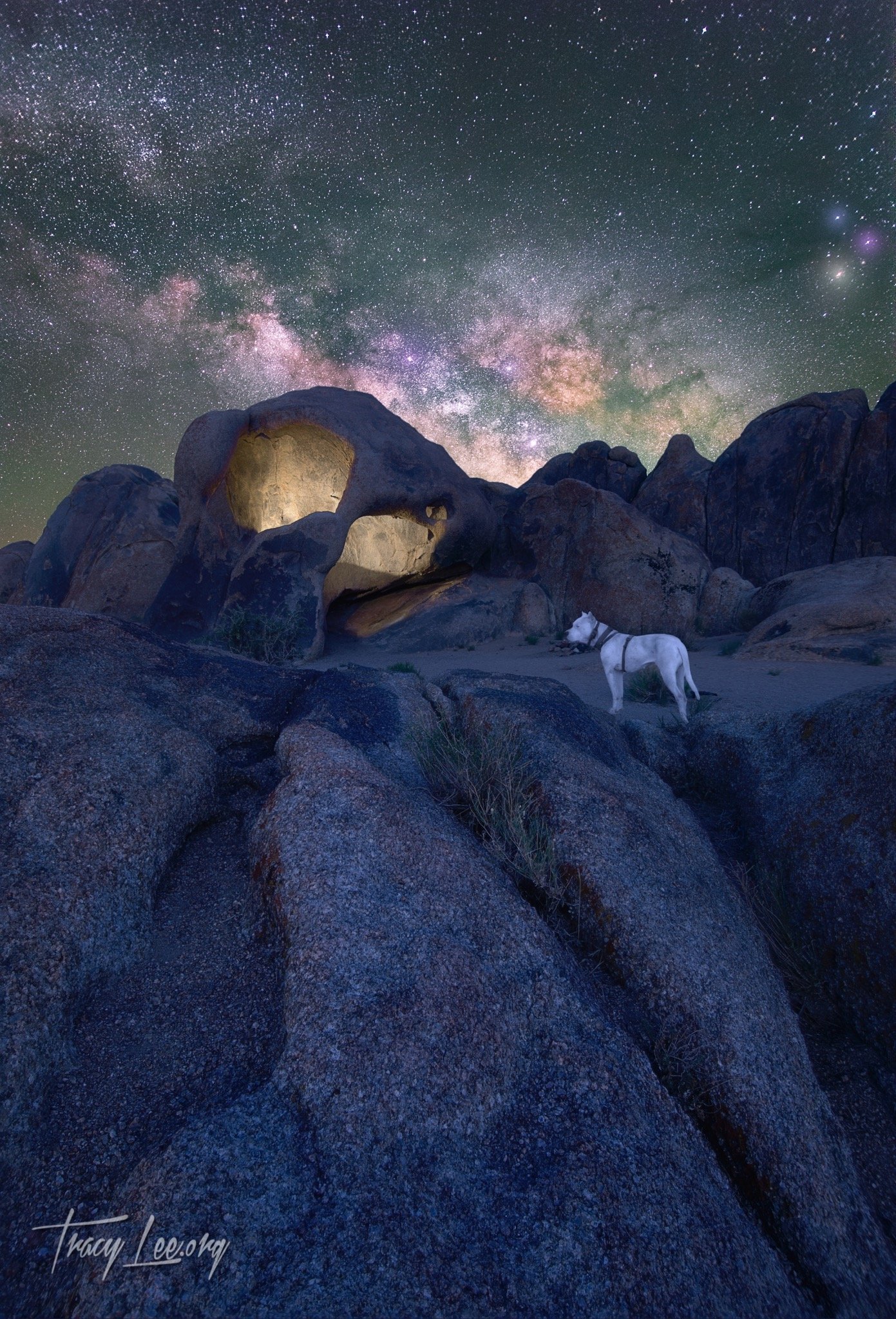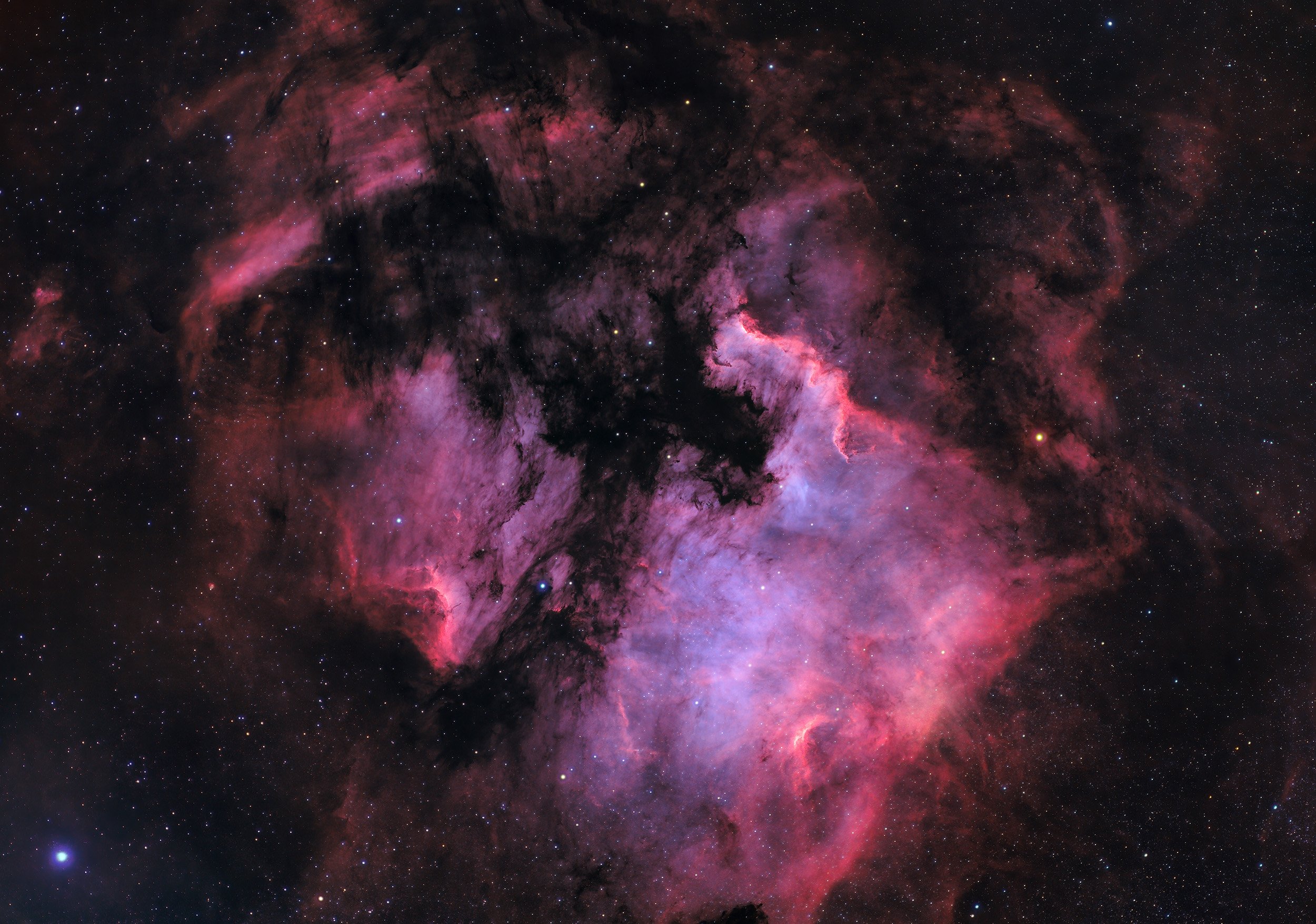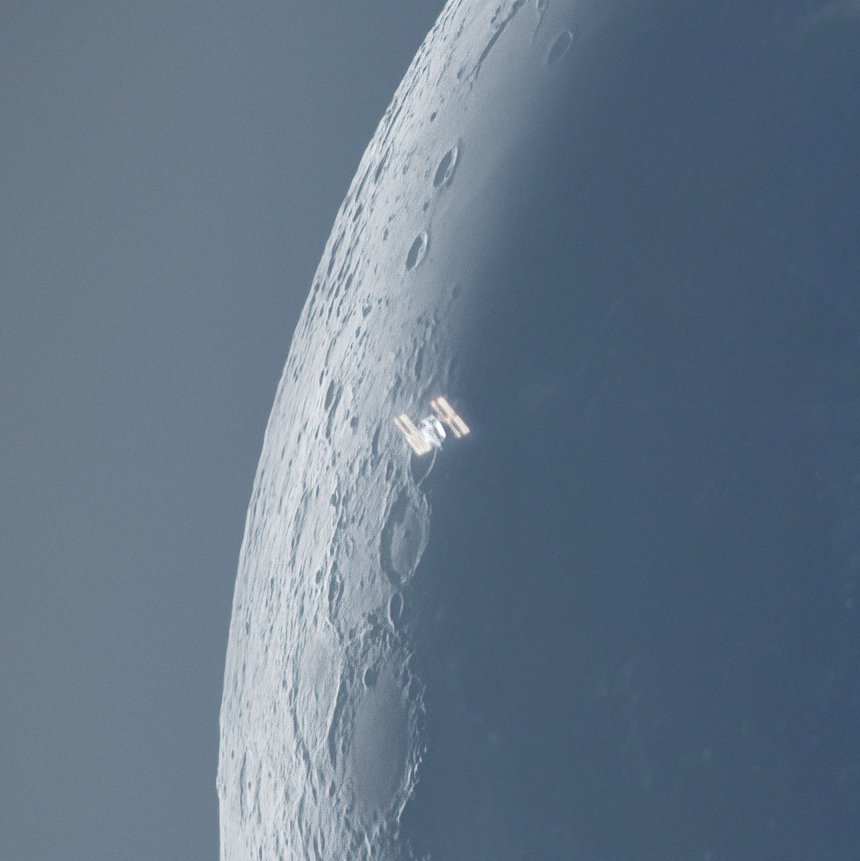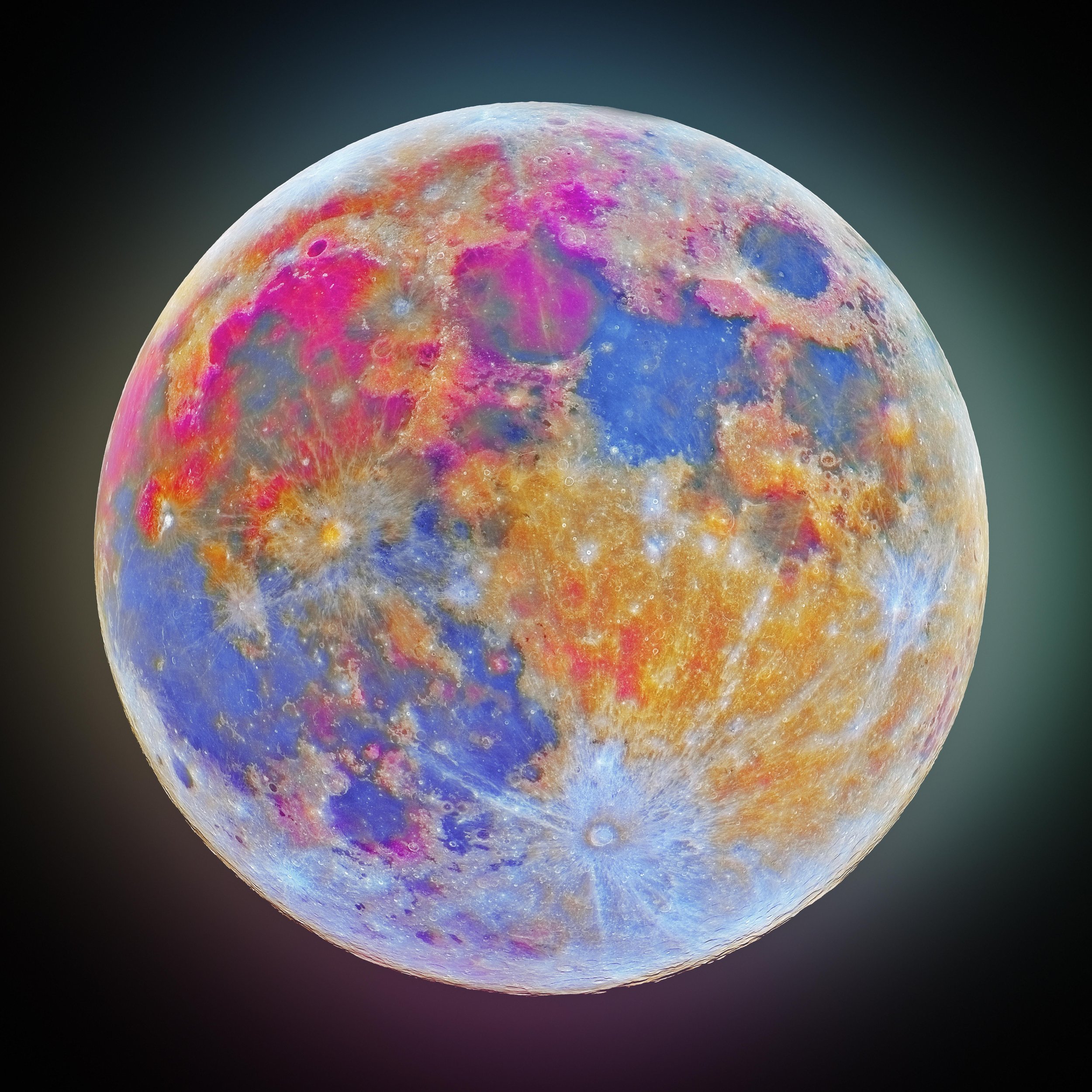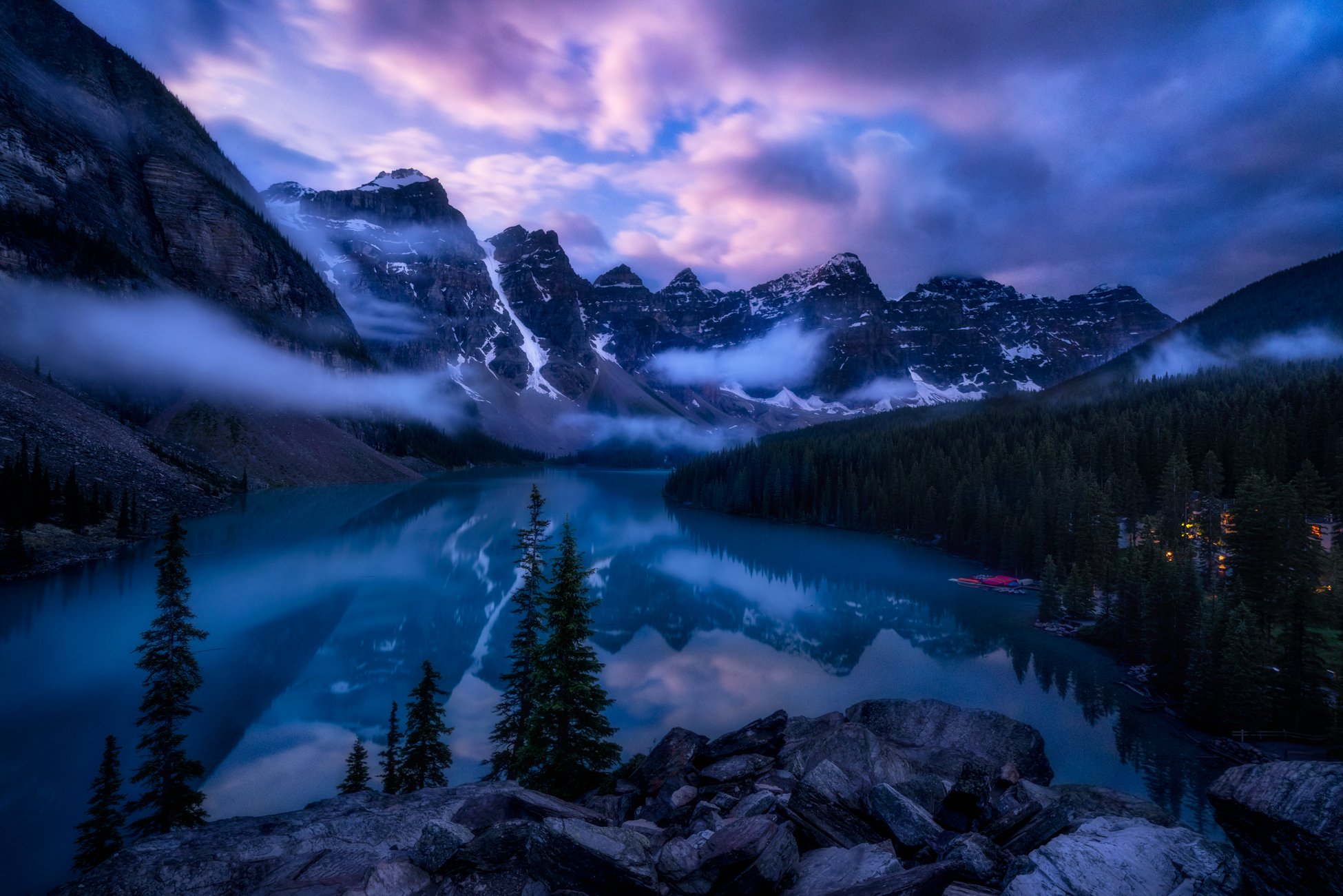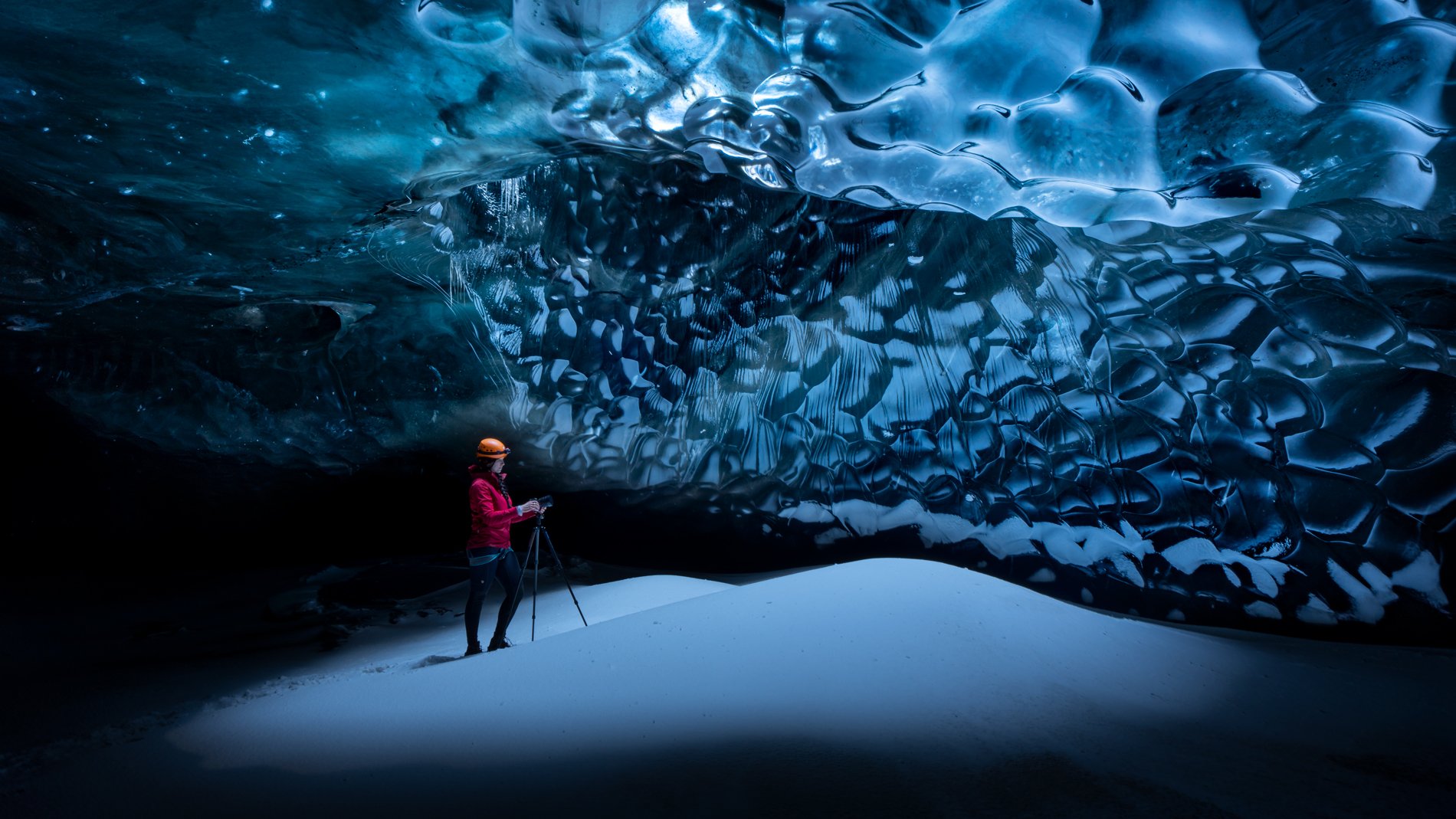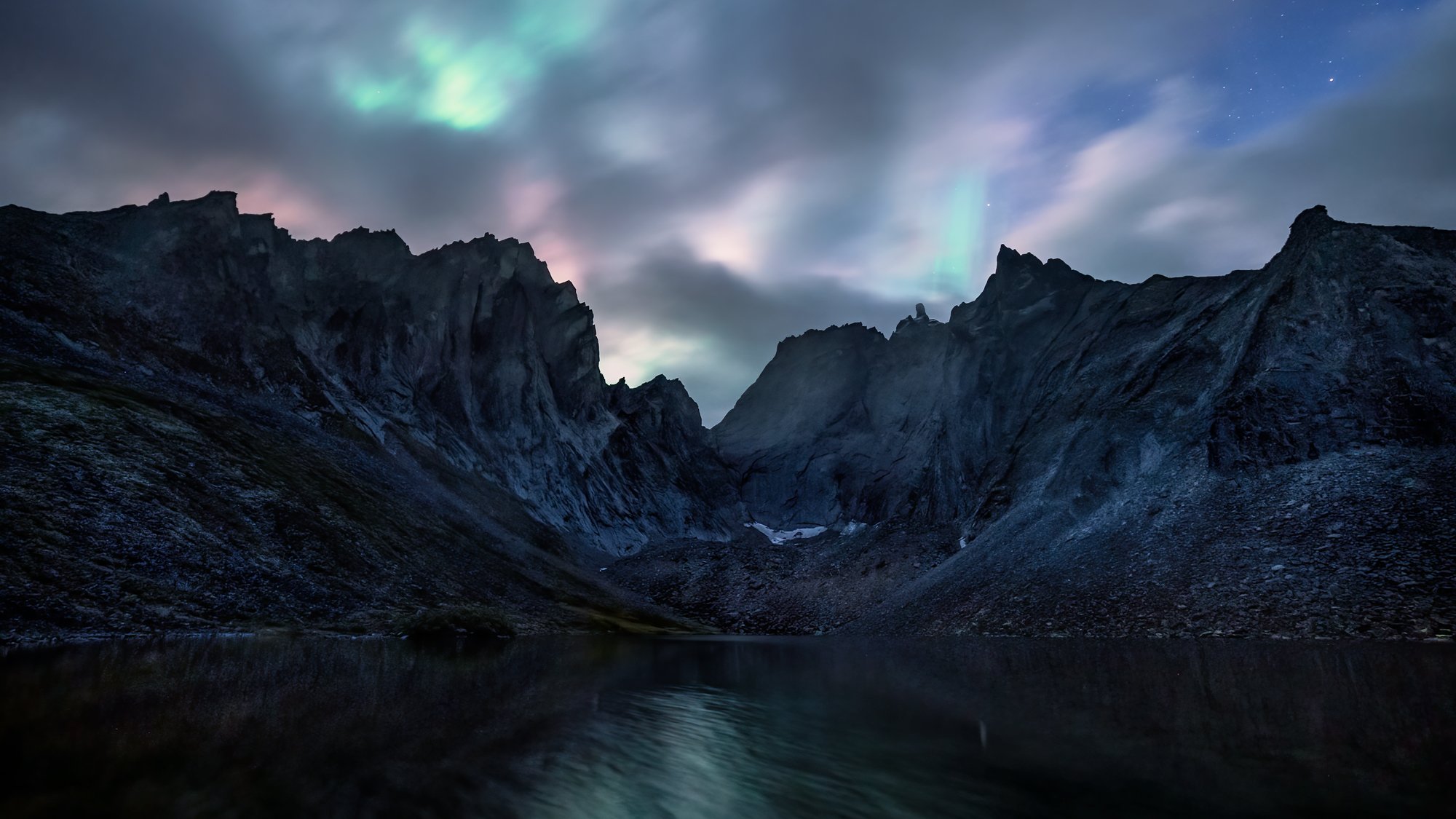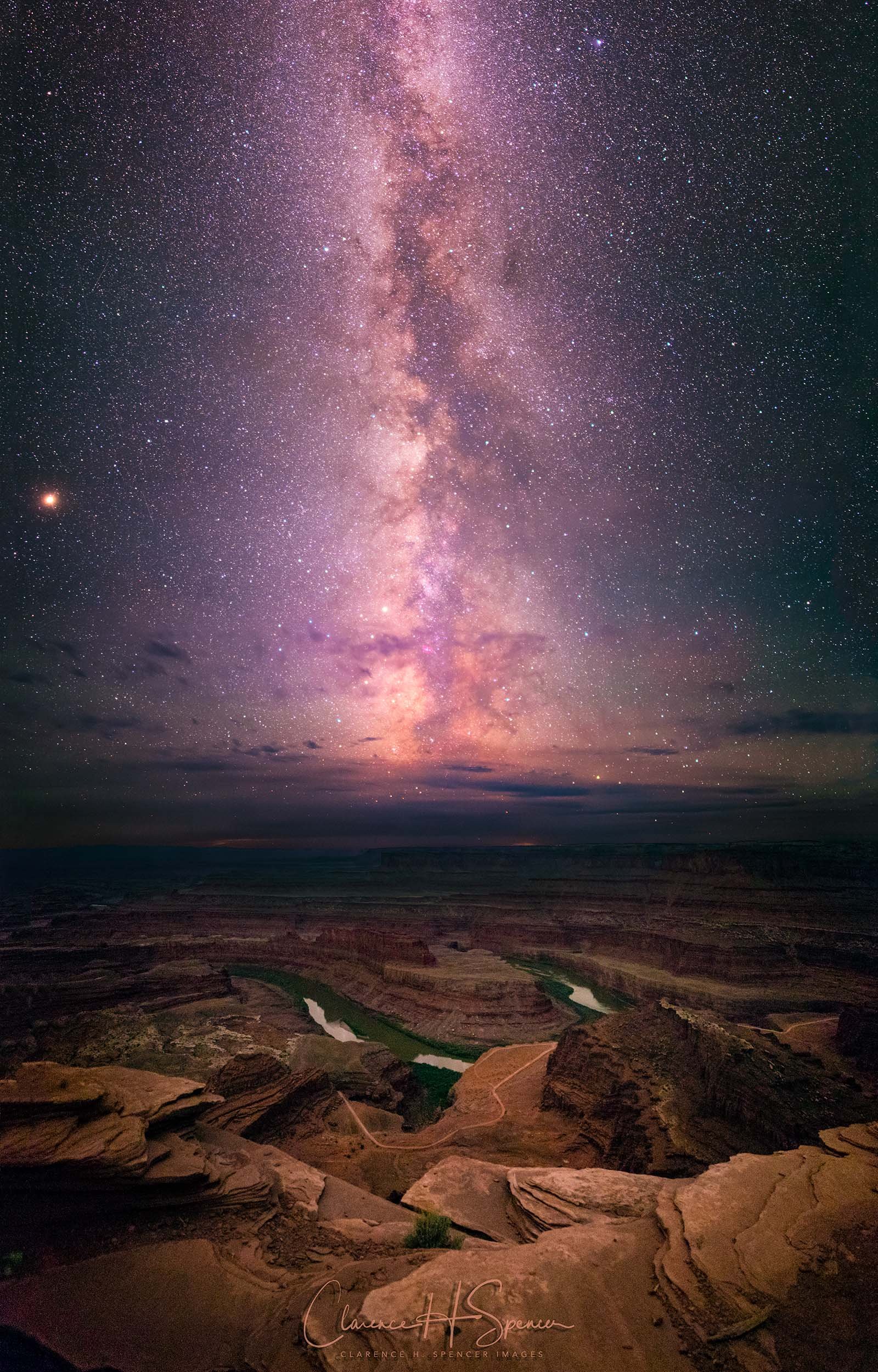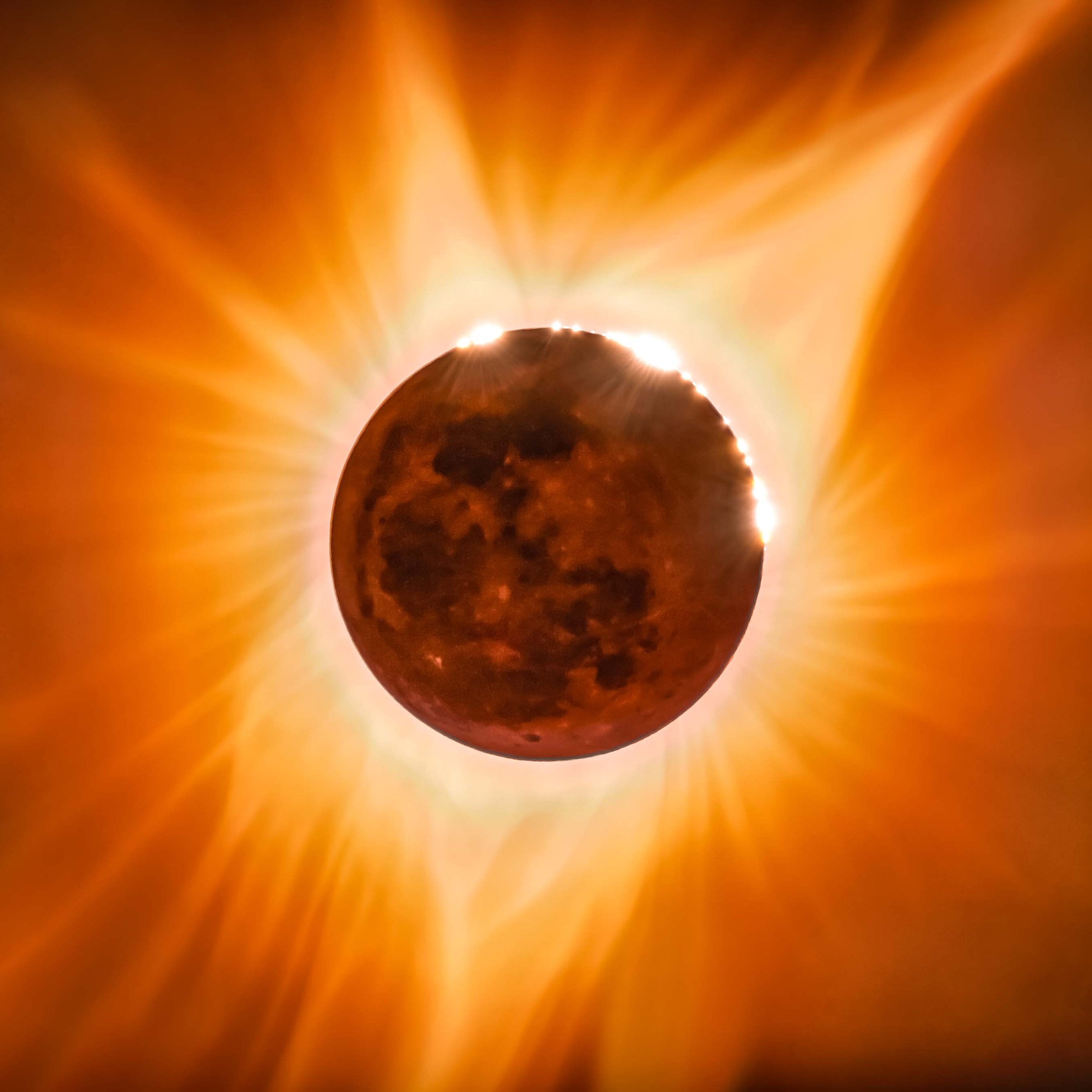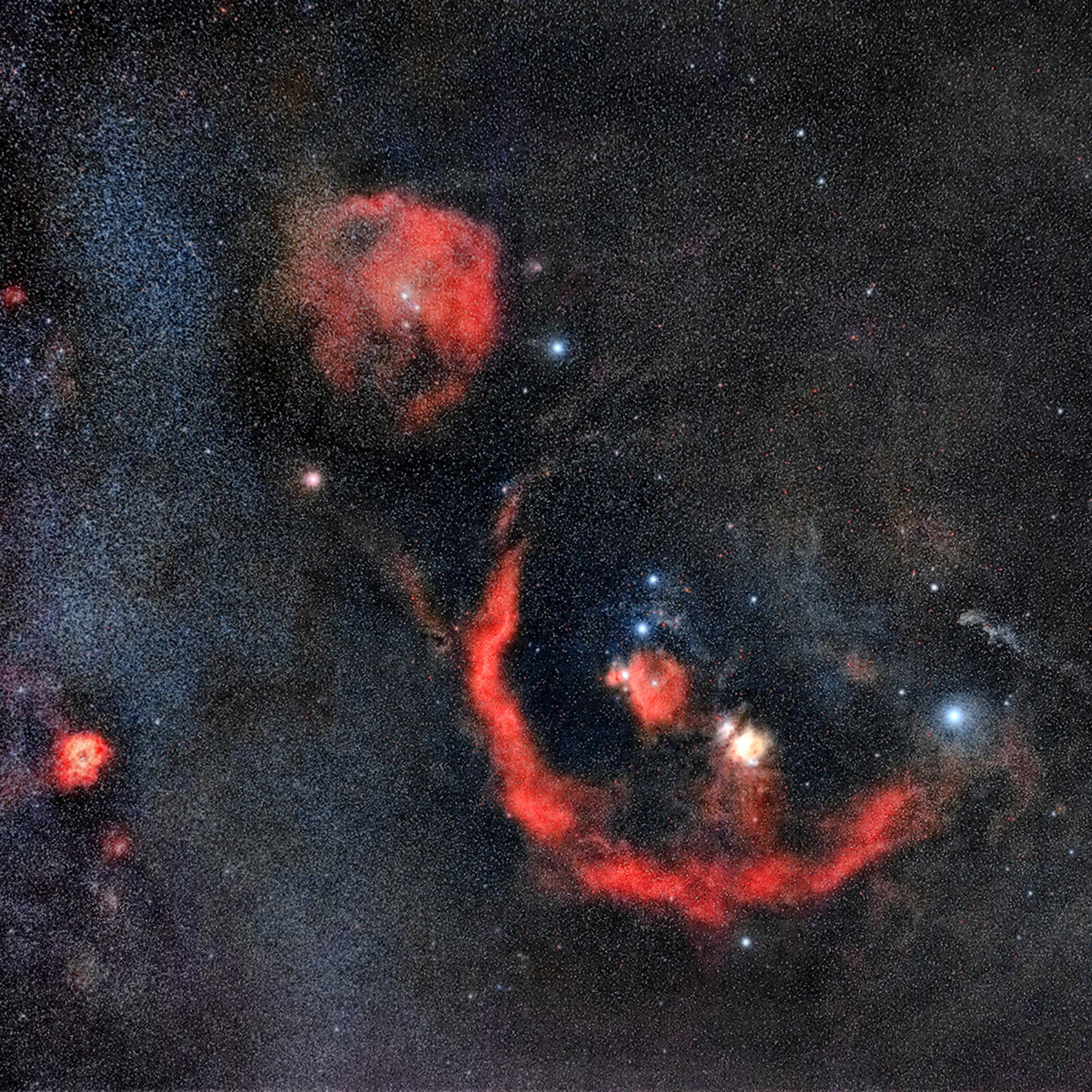COMPETITION JUDGES
ROYCE BAIR
Royce Bair has been a professional magazine and illustrative advertising photographer for three decades. He also finds satisfaction helping other photographers achieve their vision through his writings, international lectures, and workshops. As a former photography gallery owner and curator, he has helped scores of photographers showcase and sell their fine art photography. Royce was one of the early innovators in astro-landscape photography; and, his Milky Way NightScapes eBook has become a nightscape standard. Royce is the founder of the NightScaper Conference and the NightScaper Facebook group. He and Wayne Pinkston are the co-founders of the Low Level Lighting standard used widely in night photography. Instagram: @roycebairphoto
Why is it important to you that we preserve and reclaim dark skies for future generations?
I often ask myself the question, "If Van Gogh was alive today, would there have been enough clarity in the night skies over Saint Rémy, France to inspire his famous "Starry Night" painting? Fortunately, there are places where we can clearly see the night stars; however, as light pollution spreads, we are quickly losing one of the oldest and most universal links to all of human history. This is why we need to promote the use and benefits of dark sky areas as sanctuaries for creativity and solace —areas where we can remove the noise from our busy lives, to think, dream and be inspired.
YURI BELETSKY
Yuri Beletsky is a professional astronomer and an award winning nightscape photographer based in Chile. He conducts scientific research and deals with modern astronomical instrumentation at one of the largest optical telescopes located in Atacama desert.
He is an expert in astronomical photography and panoramic imaging of the night sky in particular. His images are known world wide and have been featured in various books, magazines (Astronomy, Sky & Telescope, The Times magazine, etc..), popular websites, and on TV. Yuri is one of the most active contributors to NASA Astronomy Picture of the Day (APOD), having more than 50 featured images on the NASA website. When not at the observatory you can find him traveling around the world and sharing his passion for astrophotography and nightscape photography through lectures, private lessons, and workshops. Instagram: @yuribeletsky
Why is it important to you that we preserve and reclaim dark skies for future generations?
In the modern world more then 60% of the total population of our planet live under light-polluted skies. Over the past 25 years global light pollution has increased by almost 50%. These are truly astonishing numbers. We are already seeing emerging human generation which has never seen truly dark stary skies. In ancient times people used stars to navigate, starry skies have always been an inspiration of artists, creatives, scientists, and for the society in whole. The history of many scientific discoveries were closely connected to astronomy and exploration of the night sky. The impact of the light pollution on the natural environment and on our health is real and it only leads to further exacerbation of the crisis of biodiversity. Therefore we should do our best to protect the wildlife and our own health from the devastating effect of the light pollution by using energy responsibly and thus preserving the planet for future generations.
Matt Dieterich has been passionate about photography and stargazing since 2005 when he first used a telescope to capture images of the night sky. While working at Mt. Rainier National Park in 2015, his astrophoto of Mt. Rainier was selected by the US Postal Service to become a Forever Stamp celebrating the National Park Service Centennial. Matt also received his first NASA Astronomy Picture of the Day (APOD) showcasing the Perseid Meteor Shower from Mt. Rainier. Ever since then, Matt has been fascinated with National Parks and the dark night skies they offer. In 2020, he served as Artist in Residence at Craters of the Moon National Monument where he documented the dark skies. Over the years, Matt's work has been published by outlets such as National Geographic, PBS, and CBS. His day job is installing PlaneWave Instruments telescopes for astronomers and astrophotographers all around the world. With the goal of inspiring others to stargaze, Matt continues sharing his passion for astrophotography during workshops and on his YouTube channel. Instagram: @mattdieterich
MATT DIETERICH
Why is it important to you that we preserve and reclaim dark skies for future generations?
Witnessing the night sky away from city lights can be an incredibly powerful experience. Being under a dark night sky and looking up in awe at thousands of stars is a very human experience. While we stargaze, we are carrying on a tradition that our ancestors carried out for centuries. With light pollution growing at a scary pace, now more than ever is it time to travel with someone to dark skies and show them how life changing seeing the Milky Way and thousands of stars can be.
KERRY-ANN LECKY HEPBURN
Kerry-Ann Lecky Hepburn’s interest in the night sky started from a young age. By the age of 15, she started taking pictures of the stars and many objects in the solar system. When she was a space science undergraduate student at York University in Toronto she volunteered at the observatory where she aided in tours, observing sessions and research. For another 20 plus years, she started to make big strides in the hobby working hard to improve her post-processing skills in deep sky astrophotography while dealing with light pollution and equipment shortfalls. Her work has ended up winning awards and has been featured in science textbooks, astronomy related calendars, magazines and online publications such as Sky & Telescope, Sky News and NASA APOD. She shares her knowledge by putting on workshops and doing speaking engagements for astronomy clubs, camera clubs, and the general public. While enjoying this intensive hobby, Kerry-Ann lives in the Niagara region of Ontario Canada with her family. She works for The Weather Network ( a Canadian National TV station) as a senior meteorologist and in her spare time flies small airplanes and travels around the world to capture unique nightscapes.
Instagram: @weatherandsky
Why is it important to you that we preserve and reclaim dark skies for future generations?
Light pollution destroys our view of the heavens above and has negative impacts on our health and ecosystems. From an astronomical point of view, if we continue to neglect the impact that it has, we will struggle to see the stars in the Milky Way and the countless nebulea and galaxies beyond. By observing and taking pictures of the night sky we gain a huge appreciation of our home and place in the universe. It captures our imagination and inspires us to move forward in developing a better future.
Tracy Lee has had a camera in her hand since her teenage years; it was never a dream of hers, but it did quickly become her reality. From shooting action sports starting with skateboarding and snowboarding, to shooting nightlife and events which brought her to her current home in Vegas, her camera has taken her around the world. She spent 8 years as a cage side UFC/MMA photographer & then eventually found passion in Astrophotography. She went from the fastest photography possibly to the slowest. She founded Milky Way Chasers 5 years ago as a way to test out a friends new technology, where she built a network of photographers and companies around the world. Her passion for art and technology continues to drive her as she embraces the NFT scene with open arms. She has already got the titles of NFT Artist, Curator, and Collector under her belt as the technology grows, evolves, and changes in the new space. It's a true honor to have been invited to be a judge in this year's ASRO2021 Photo Competition. Instagram: @milkywaychasers
TRACY LEE
Why is it important to you that we preserve and reclaim dark skies for future generations
As a child I was hyper active and you couldn't get me to stop talking or sit still. But when we went camping, there was always something about the stars that got me to slow down, and be calm. That hasn't changed and I'm afraid that if we don't have the calming effects of the night sky, our ability to center and find peace within ourselves may disappear; the anger, frustration and hurt will take over which has already been happening in society.
Andrew McCarthy is an astrophotographer based out of Arizona. He has been featured by National Geographic, BBC, Forbes, and has done various TV appearances as an astrophotography consultant. His portfolio includes images of our solar system, our galaxy, and far beyond. His work is made famous by his popular Instagram account @cosmic_background.
ANDREW MCCARTHY
Why is it important to you that we preserve and reclaim dark skies for future generations?
Throughout history, mankind has been guided by the stars. They were our first compass, our first clock, and ultimately led to our understanding of our position in the cosmos. We are slowly losing visibility of our milky way, and soon there will not be a civilized place on Earth where it is visible. Without it, the source of inspiration that has helped mold some of the greatest minds in history will be gone, and the loss is immeasurable.
Rachel Jones Ross is a light-chasing, coffee-loving, intellectual junkie, who is most inspired by a sky full of stars. Last year, she set out on a personal challenge to spend 100 nights under the stars. Her project spanned from her home in Canmore, to the Northern reaches of Iceland, and the Southernmost glacial fjords in Chile.
Rachel has always been compelled to explore. When her children were small she explored the world through research and study in social psychology, earning a Master of Science. As her children grew, so did her explorations; she is a licensed pilot, and a certified diver. Today Rachel explores through travel and photography. She is a member of the Sony Alpha Imaging Collective, and teaches photography workshops in the Canadian Rockies, Scotland, and Iceland. Instagram: @rachel_jones_ross
RACHAEL JONES ROSS
Why is it important to you that we preserve and reclaim dark skies for future generations?
The future is now. Light pollution disrupts the circadian rhythm in people, as well as animals. For us, light pollution contributes to sleep disorders which can affect our overall health. For animals, light pollution is even more costly. Light pollution changes night into day for many species, making habitats unsuitable for survival and reproduction. Preserving dark skies is essential to humans and animals alike, now, and for future generations.
CLARENCE SPENCER
Clarence Spencer is the founder, owner, and operating manager of Spencer's Camera & Photo. He studied Electrical Automation and Robotics Technology at Utah Valley University. He has a true passion for night sky and infrared photography. He is an award-winning photographer, Electronics and Repair Technician, and photography workshop instructor.
Clarence is a native of Utah and loves the unique natural landscapes only Utah has to offer. He enjoys many outdoor activities including camping, hiking, backpacking, and mountain biking. When the moon is new and the sky is clear you will find Clarence in the beautiful places of Utah capturing nightscapes and deep sky images. Instagram: @spencerscamera
Why is it important to you that we preserve and reclaim dark skies for future generations?
I have loved spending time under the stars with my father and children throughout my entire life. Viewing the milky way in a dark sky location is something fairly few people truly experience. I want future generations to be able to experience the same sense of awe I have been able to experience my entire life.


